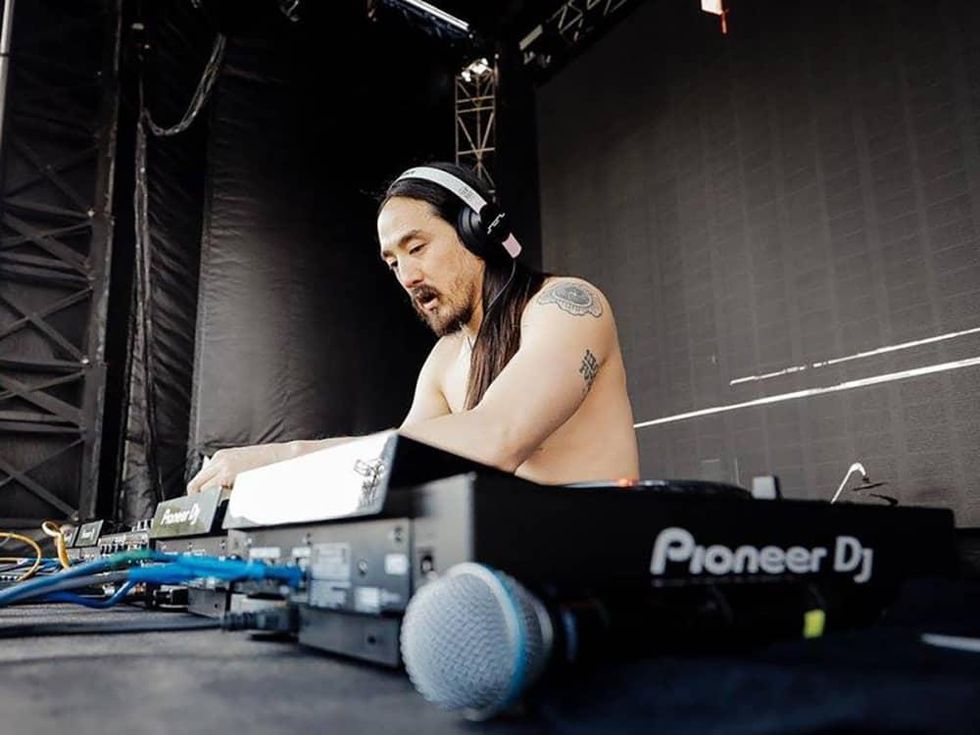The CultureMap Interview
No retakes in war: The hippie parents' warrior talks Taliban fighting inRestrepo
 Restrepo tells the true story of the war in Afghanistan.
Restrepo tells the true story of the war in Afghanistan. Sebastian Junger also wrote "The Perfect Storm."
Sebastian Junger also wrote "The Perfect Storm."
The TV news reporter wanted to stroll through the Angelika Film Center lobby alongside Sgt. Misha Pemble-Belkin, to get some intro footage for the interview they’d just taped. But the first attempt didn’t feel quite right for the reporter — and didn’t look quite right to her camera operator — so she asked if they could do it again.
The twentysomething sergeant nodded gamely. He didn’t really mind. After all, the last time he was videotaped by journalists, he never got a chance to do retakes.
That was back in 2007, when the Oregon-born Sgt. Pemble-Belkin and his comrades in Battle Company of the 173rd Airborne Brigade were serving in Afghanistan's treacherous Korengal Valley, one of the most dangerous postings in the U.S. military.
At this remote strategic outpost — which they named Restrepo in honor of their medic, PFC Juan Restrepo, who was killed in action — they were assigned to deter the activities of guerrilla Taliban fighters and, whenever they weren’t being shot at, win the hearts and minds of profoundly skeptical locals. Neither task was easy.
Starting in June 2007, award-winning photojournalist Tim Hetherington and author-journalist Sebastian Junger (The Perfect Storm) joined the men of Second Platoon, making a total of 10 trips to the Korengal over a period of several months. Each trip started with a helicopter flight into the valley, followed by a two-hour hike to Restrepo, where they found no running water, no Internet, no phone communication, and for a while, no electricity or heat.
On some days, the outpost was attacked three or four times, from distances as close as 50 yards. Hetherington and Junger could not shoot back during firefights. But they did train their video cameras on Pemble-Belkin and his fellow soldiers, capturing unguarded moments of combat and boredom, humor and terror, frustration and tomfoolery, day-to-day life and sudden death.
Restrepo, the extraordinary film Hetherington and Junger culled from more than 150 hours of footage, has been acclaimed by critics as a vivid and devastating documentary about the bonding and bravery of men under fire. But all the full-throated raves by professional reviewers — and the grand jury prize bestowed by the 2010 Sundance Film Festival — may not count quite as much as thumb’s-up appraisals by the movie’s subjects.
Sgt. Misha Pemble-Belkin thinks so much of Restrepo that he motorcycled in from Louisiana’s Fort Polk, where he currently is stationed, to appear at an opening-day screening Friday night at the Angela Film Center.
During a Q&A, he politely but firmly deflected what he calls “political questions,” but revealed that he wants to remain in the Army “until we win the war. I don’t want it to go on until my children are old enough to have to go over there.” And he laughed while agreeing that, while his parents love and support him, they would no doubt be among those most outspoken in their opposition to that war. Pemble-Belkin talked about everything from his hippie mom and dad to who he can and can't discuss the war with to ordering a journalist to stand guard duty in a CultureMap exclusive.
CultureMap: In the movie, you speak affectionately about your “hippie,” pacifist parents. Do you think if they’d been gung-ho ex-Marines, you might not have wound up in Afghanistan?
Misha Pemble-Belkin: Oh, I’m not sure about that. I probably would have been there anyway. I joined the military to serve my country — to defend it. I was raised to choose whatever career path I believed in. And I wanted to go into the military.
CM: While you were in harm’s way during the time covered in Restrepo, did you ever get the feeling that, back home, people were focused more on the situation in Iraq, and that Afghanistan was more or less an afterthought?
MPB: Yes. When we were in Afghanistan in 2007, 2008 — it was known as the forgotten war. Everybody thought no one was thinking about us over there. Except for the handful of our family members who were sending us care packages and things like that.
CM: Many of us who never served in the military have noted that our parents and grandparents find it very difficult, even years after the fact, to talk about their wartime experiences. Has this been the case for you?
MPB: Yeah, I do find it difficult to talk about my experiences with anyone who doesn’t understand what we’re doing over there. It’s one thing to talk with a buddy who’s also been over there, and they’ll say, “Hey, yeah, I know what that’s like.’ You can just go back and forth, and tell each other stories, and talk with him.
But when you come back home, and you try to tell some of these stories, you have to deal with some of the questions people ask you. Like, “What is like to kill somebody?” I mean, why would you ask me something like that? And that makes it more difficult for me to speak about it. Because they don’t understand what it was like, and what you want to talk about.
CM: How do you think we could understand?
MPB: If you want to understand what it’s like, try to think of what it would be like to lose your mother or your father. Something that bad, that comparable. Over there — well, it’s not like you experience something like that on a daily basis. But maybe once a month over there, you may experience something like you only experience every 10 or 20 years here. Every day you’re out there, there’s a good chance you or one of your buddies will be killed.
CM: It’s obvious that Tim Hetherington and Sebastian Junger had to have earned the respect and trust of you and your fellow soldiers for them to have gotten such an up-close and unfiltered view of your day-to-day lives. How did they do that?
MPB: Well, most of the reporters who go over there, they’re in and out in a few days, or a couple of weeks. But they just stayed there, stayed with us. And they got to know us. And they’d bring us tobacco, they’d bring us dip — they’d bring us (satellite) phones so we could call home. They were around long enough for us to trust them. (Laughs) When we were first building Restrepo, we were sleeping on the ground.
They helped us fortify the place, helped us fill up the sandbags. And that first night, I woke Tim up in the middle of the night and told him, “C’mon man. You got to get up and take your turn at guard.” And he was still half-asleep, and rubbing his eyes, and he said, “Yeah, right.” And I said, “No man, I’m not kidding. It’s your turn on guard.” And then he — well, he didn’t start laughing. But he got it.
CM: Restrepo has gotten mostly rave reviews. But there have been a few critics who have complained that the movie doesn’t offer some sort of political statement about the war in Afghanistan. How would you respond to that?
MPB: It’s not a political film. It’s just the true story of soldiers. And that’s it.





